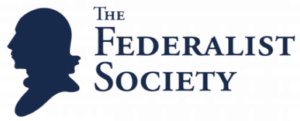Free Speech on the Fourth of July
On the Fourth of July, a preliminary injunction issued against the government protecting the rights of all Americans to enter and be heard in the modern public square that is social media without government interference. Judge Terry A. Doughty, in Missouri v. Biden, issued an order and an opinion preventing the administration from “urging, encouraging, pressuring, or inducing in any manner the removal, deletion, suppression, or reduction of content containing protected free speech posted on social-media platforms.” The injunction also prevents the government from “threatening, pressuring, or coercing social-media companies in any manner to remove, delete, suppress, or reduce posted content of postings containing protected free speech.” This preliminary injunction was issued after discovery demonstrated a government-wide effort to remove political views the government did not like from public view through a concerted effort to intimidate social media platforms.
The order curtails an ongoing governmental campaign to silence views opposing the government’s policies. It rests on facts developed in depositions of key administration actors, including Dr. Anthony Fauci. The government witnesses wanted messages they disagreed with taken off of social media and were not hesitant to intimidate, browbeat, and threaten these companies into doing so. The 155-page opinion details the government-wide effort to silence respected epidemiologists who disagreed with Dr. Fauci and parents concerned with mask mandates. In one particularly amusing portion, the court details the administration’s efforts to ban parody accounts that made fun of Dr. Fauci.
The opinion and order also rest upon sound law. The Constitution says that the government may not “abridge” the freedom of speech. Plaintiffs Jay Battacharya, Martin Kulldorff, Aaron Kheriaty, and Jill Hines, the court said, had their rights to speak and to hear others speak abridged by the actions and stated policies of the federal government. The court relied on a myriad of Supreme Court precedents but also cited George Washington and Benjamin Franklin on what the right to free speech has meant in America.
Some commentators have theorized that this injunction impedes the government’s own right to free speech and fear that it prevents the government from letting social media and others know its views. But the order allows the government to coordinate with social media with regard to preventing criminality and protecting national security, just not to eliminate dissent on social media. Judge Doughty specifically addressed the government’s concerns about having its hands tied. After prohibiting government interference with “content protected by the Free Speech Clause of the First Amendment to the United States Constitution,” he explicitly stated what was not prohibited. This included “informing social-media companies of postings involving criminal activity or criminal conspiracies.” The injunction also allows the government to alert social media companies to threats to national security or attempts to subvert voting, including foreign attempts to interfere with voting. To the extent the speech is not protected by the First Amendment, the government can communicate about deleting or downgrading that information.
The government argued that it was simply trying to “educate” social media companies on its preferences, but the court found the “education” had become coercive. The Fourth of July order stops that effort. It’s a win for all Americans who want to engage in public debate on important subjects. Even if the government doesn’t want you to.
July 12, 2023

Originally Published in The Federalist Society
